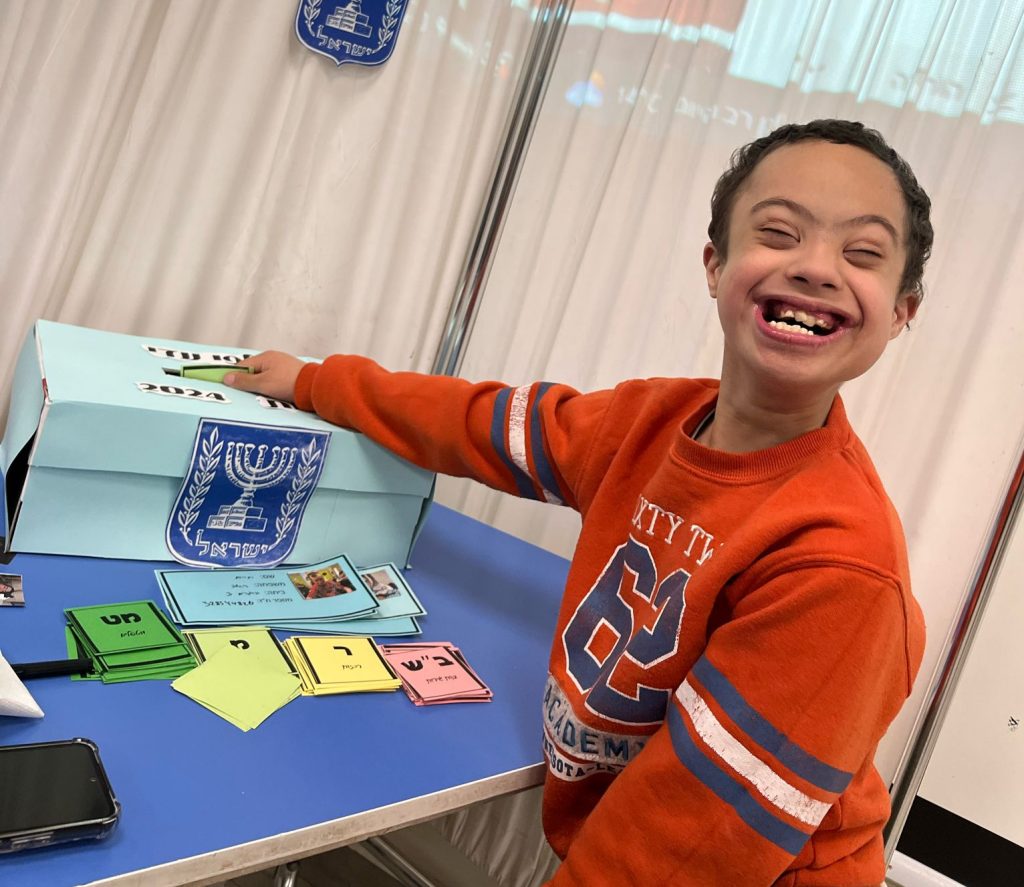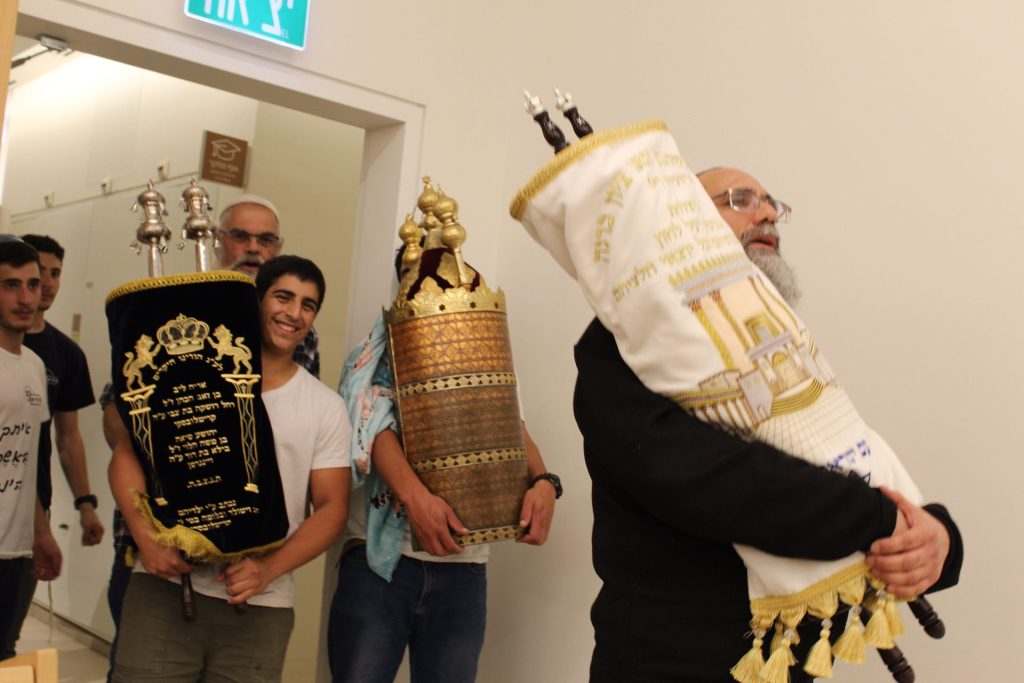On the 15th of September 2016 Rikki Frohlich came to the Christian University of Applied Sciences and gave a very impressive presentation. Afterwards, reactions such as ‘what a special woman’, to ‘now I see that working with disabled persons can be such an addition to your own life’ were spreading around. This woman let us, Dutch nursing students, think about an important and interesting part of the profession of nurse.
ADI is Israel’s largest network of care for children with severe multiple disabilities and one of the branches is located in Jerusalem. The head nurse from ADI- Jerusalem is Rikki Frohlich, who has been working for the Jerusalem branch for 15 years. ‘The atmosphere in ADI-Jerusalem is so special’ said Rikki. ADI- Jerusalem is a warm and loving home for children with disabilities. They believe that every individual is special and is equally deserving of love, respect, and the opportunity to develop to their full potential, while enjoying quality of live. A multidisciplinary team is ready to help the children in everything they need. A good quality of live is what they deserve, no matter what condition they have or what their background may be. Rikki uses many examples of her daily practice to illuminate the subjects.
But what is the definition of quality of life? This was one of the question Rikki asked. Is it quality of life when the children are able to play? Or to run the Jerusalem marathon? Quality of life is a relative term, it depends on culture, society and personal preferences. But one thing is a universal understanding: pain and suffering do not contribute to the quality of life. Quality of life is one of the goals of ADI, another is protecting children rights. But what are the rights that ADI protects? Who decides what is good for the children and who decides what quality of life is? These are moral dilemmas and this organization handles these dilemmas in a unique way. The organization works from a Jewish conviction in a Jewish democratic state. Which means that, for resolving issues, they use the Jewish code of practice. The Jewish code of practice is based on the oral law and the written law, both laws are important to make decisions. The following descriptions were mentioned by Rikki:
- Leviticus 26:11: ‘For I am G-d your healer’. Some people infer from this there is a divine schedule for reward and punishment. Thus, you will be blessed with a good health when you behave correctly and you will be punished with illness if you sin and violate the law. There is no intervention allowed in this divine schedule. This is an opinion of the minority, this is not the way of the Jewish laws.
- Exodus 21:19: ‘Cause him to be thoroughly healed’. From this we infer that there is a positive commandment to heal and help when we can.
- Talmud, Brachot 21a: ‘Be still and passive’. When there is a positive commandment, but you know it may cause harm, than you are allowed to sit back and be passive in some cases.
These three principles looks contradicting but they are not. It seems like the Jewish view is that they are obliged to help in all situations where there is therapeutic hope. But when the help causes suffering and the treatment is futile, they have to and are allowed to sit back and be passive. In Jewish code of law quality of life is what counts, so, they have to be careful to ensure quality of life.
One of the ethical dilemmas Rikki mentioned was a situation whereby a specific operation would result in a better quality of life, however, the risk of the operation was high (40% morbidity rate). In this situation they looked at the Jewish guideline. This child would definitely suffer if they would not do the operation. If we look at the percentage at a different way, there is a 60 % change of success, so we can see this as therapeutic hope. That is why the operation was performed. The predominant thought is that everyone deserves a chance to live in the best way they can.
ADI makes important and difficult (ethical) decisions on basis of Jewish principles. By doing this, they are able to substantiate their decisions. As Rikki said ‘We are a Jewish democratic state, we are democratic, but also Jewish.’ This Jewish base make them unique and different from the rest of the world. So in short the clear Jewish guidelines are:
- Intrinsic value of life: Life is holy, given by G-d and taken away by G-d. They have to help and heal when they can. However wisdom is needed to know when to treat and when to sit back and be passive.
- Quality of Life is important. Everyone deserves it, but it’s very difficult to define. And one should be very careful to define it.
- Quantity of life is not absolute. Sometimes we have to sit back and be passive, let it go….
‘Israel is a multicultural society and everyone needs to be taken into consideration.’ This was one of the final statements of the lecture and this is also the statement which I want to end my article about this lecture with. This sentence is what ADI is about, ADI stands for care for every single person with a disability and that everyone will be taken into consideration.
We want to thank Rikki Frohlich for her enthusiasm and her interesting lecture about ethical topics in nursing care and the Jewish view on this. I think we all saw the love that she has for these special children. It was beautiful and special to see this.






